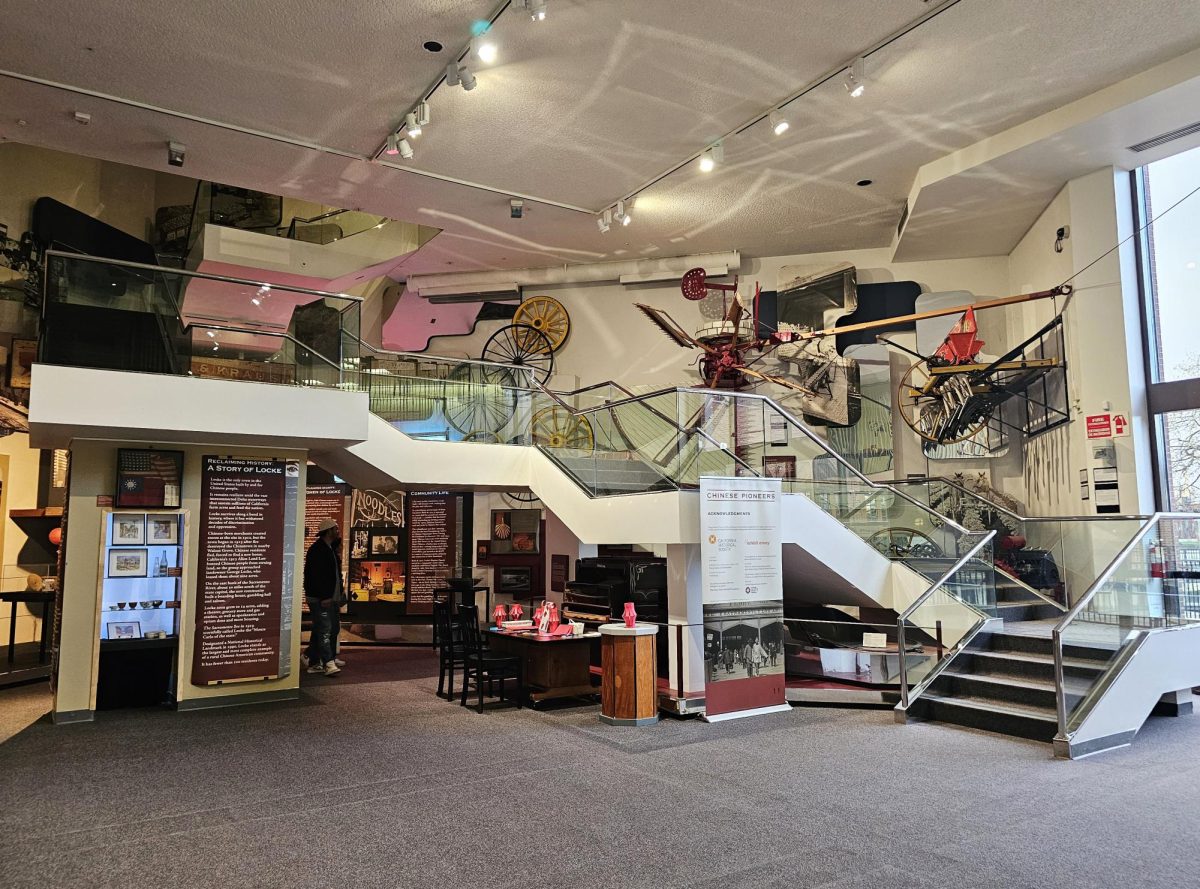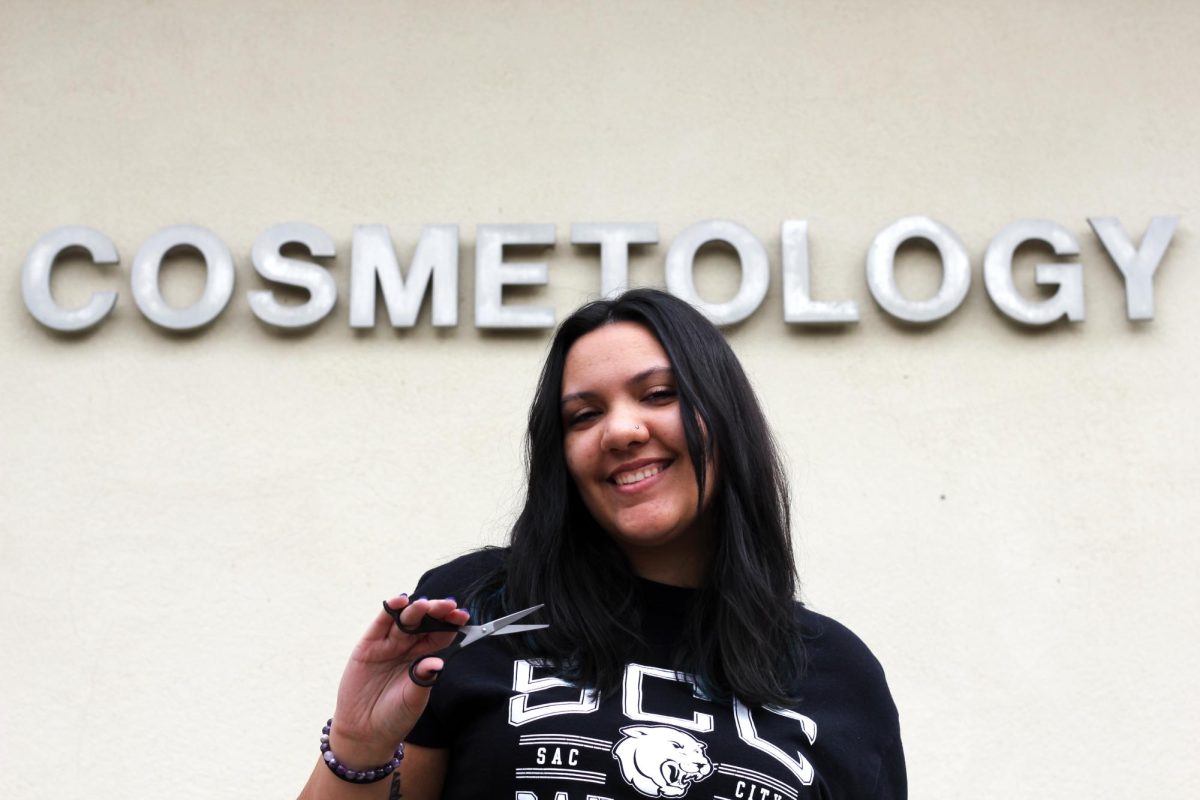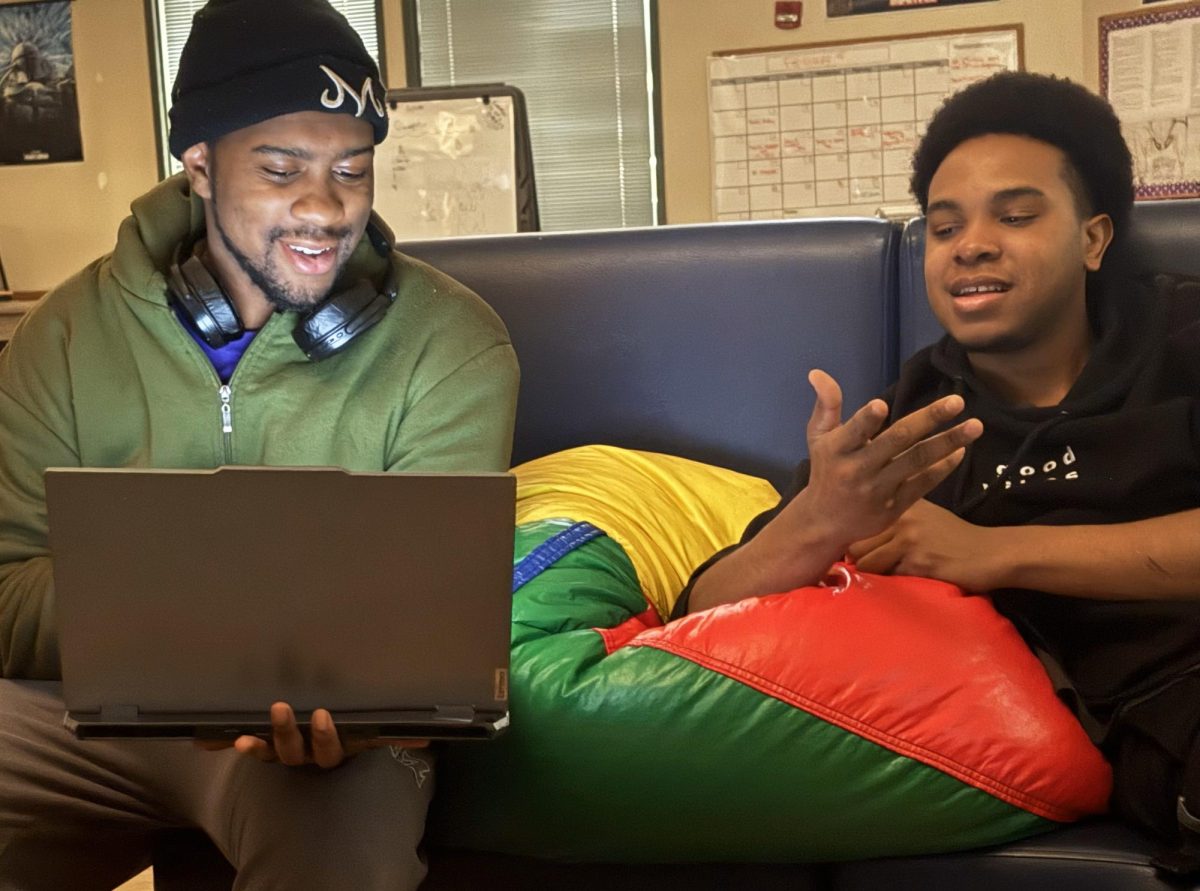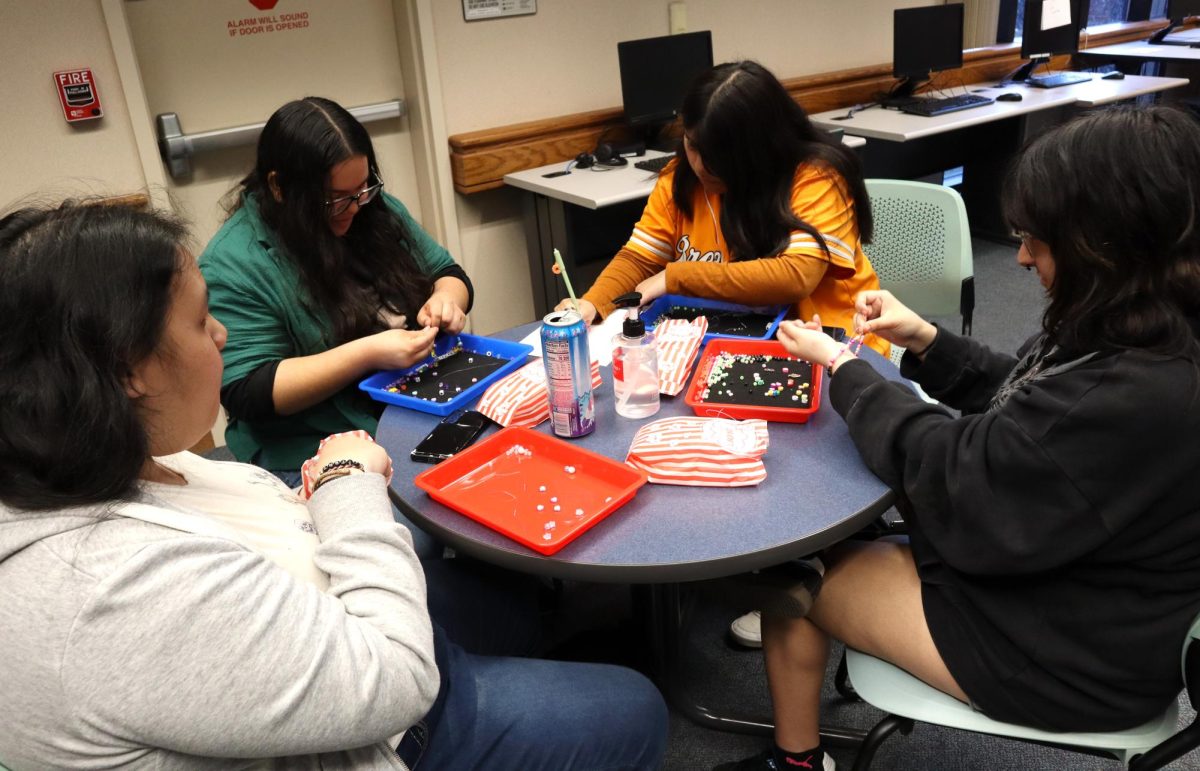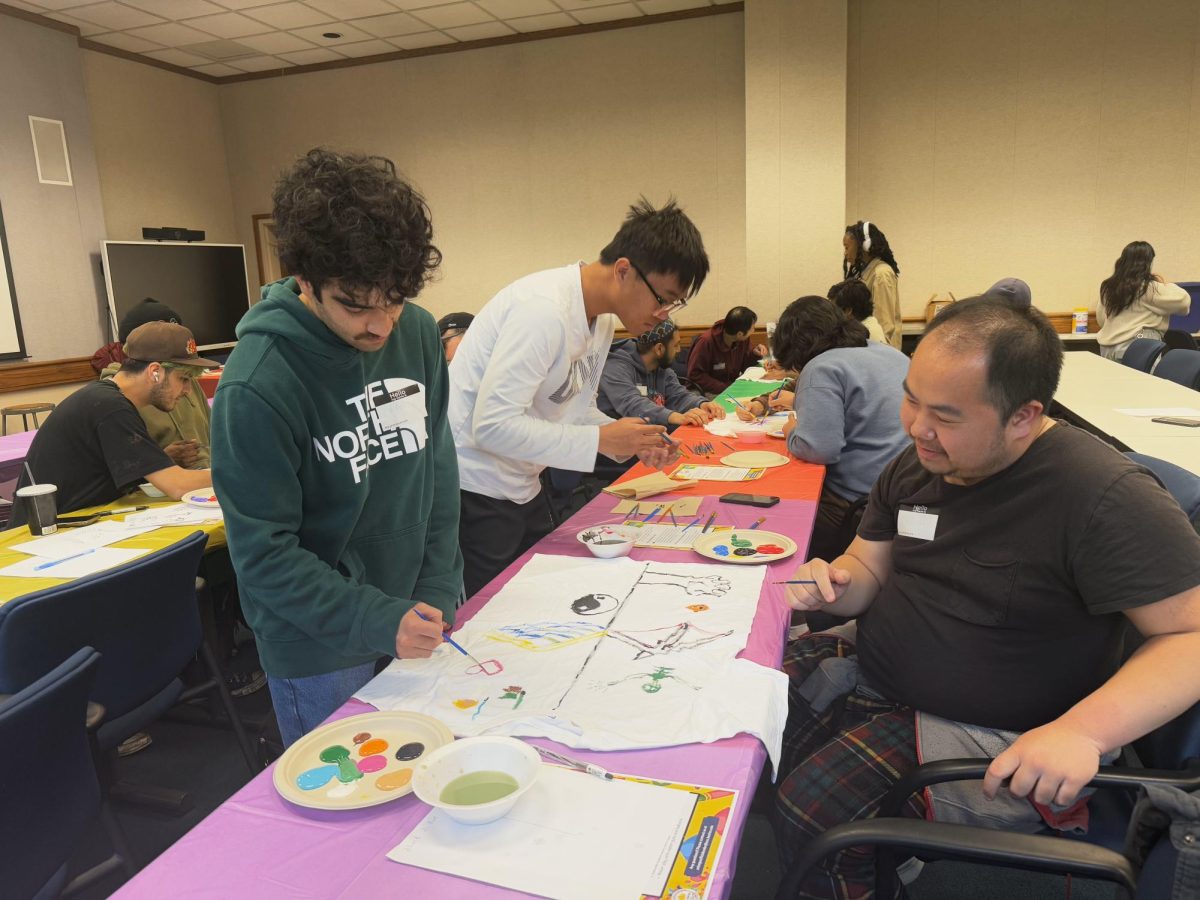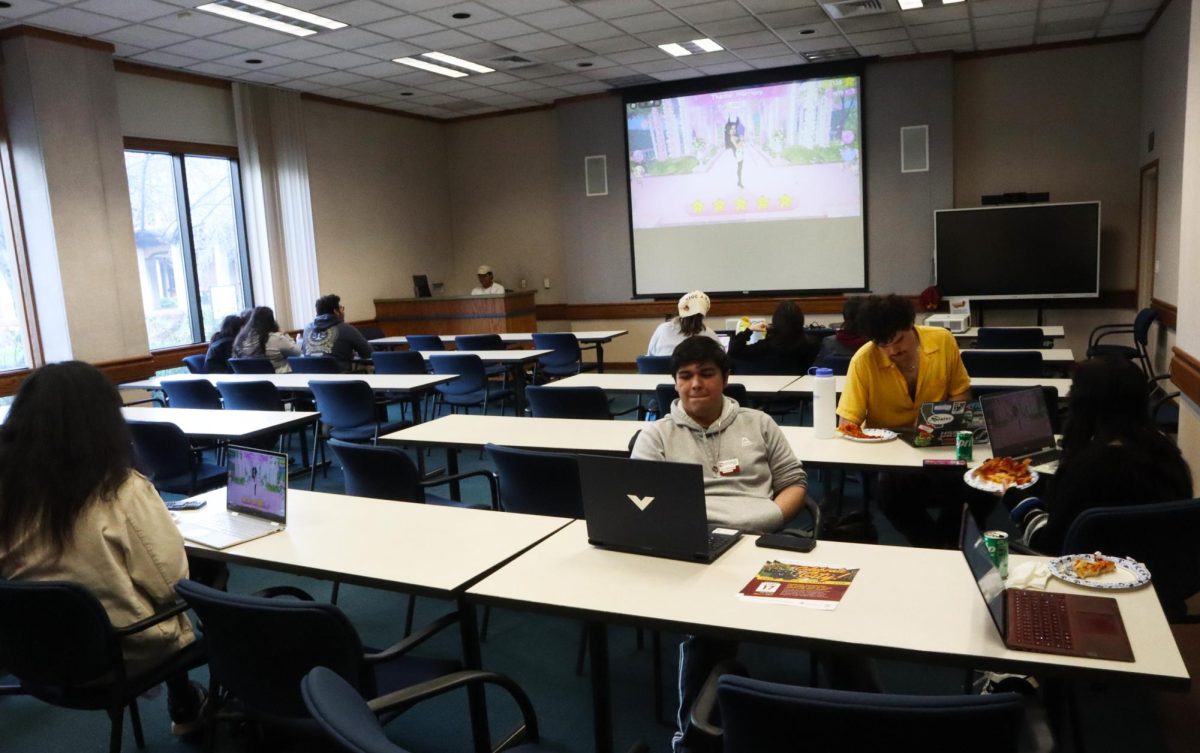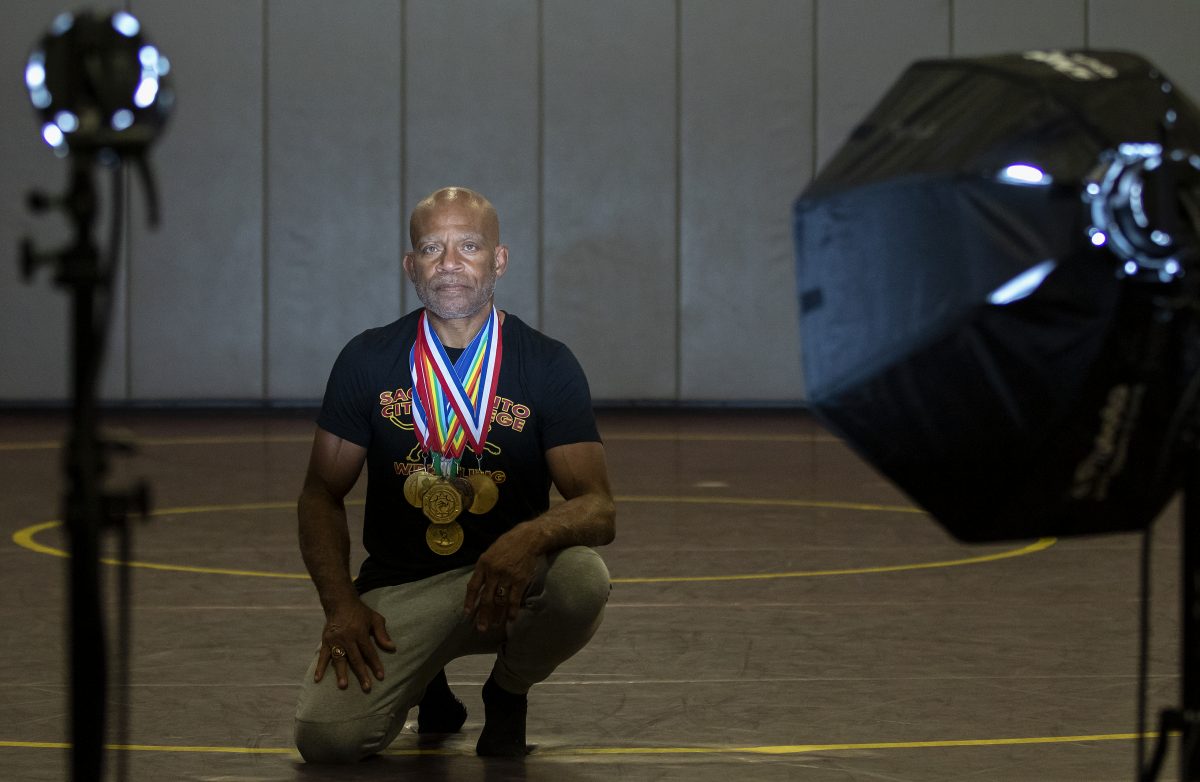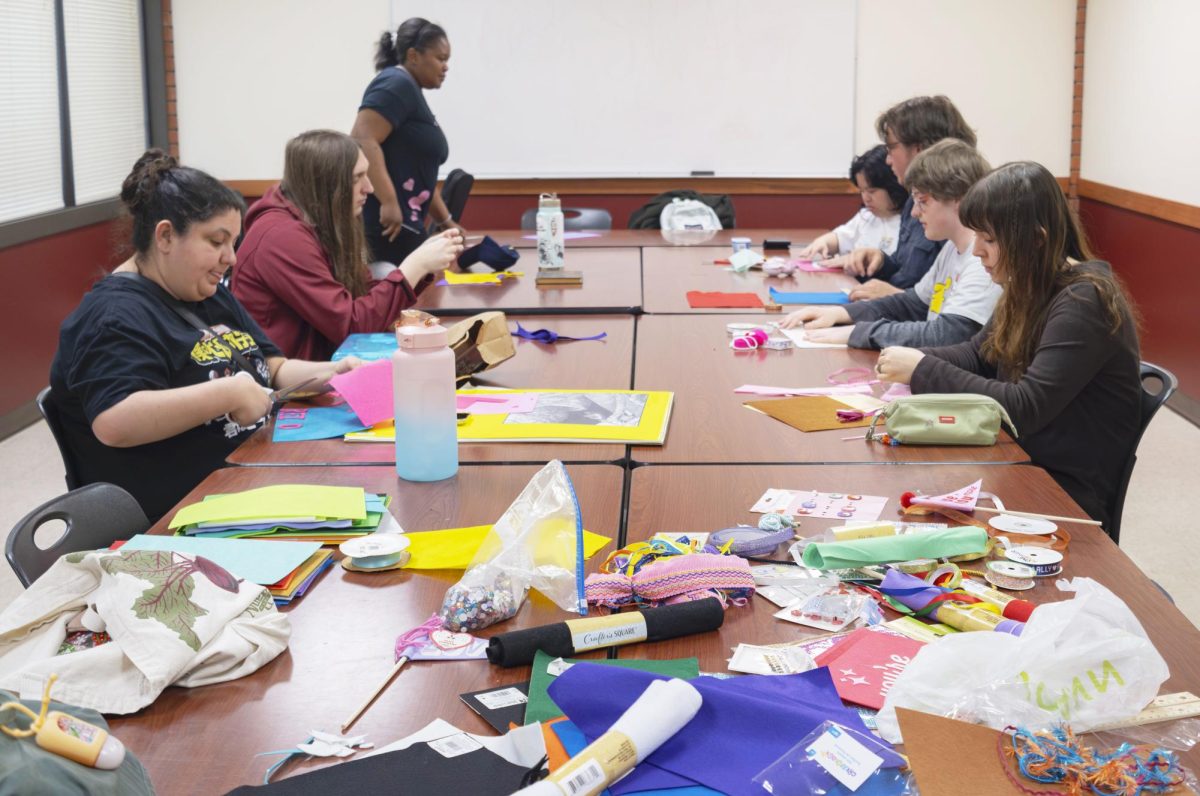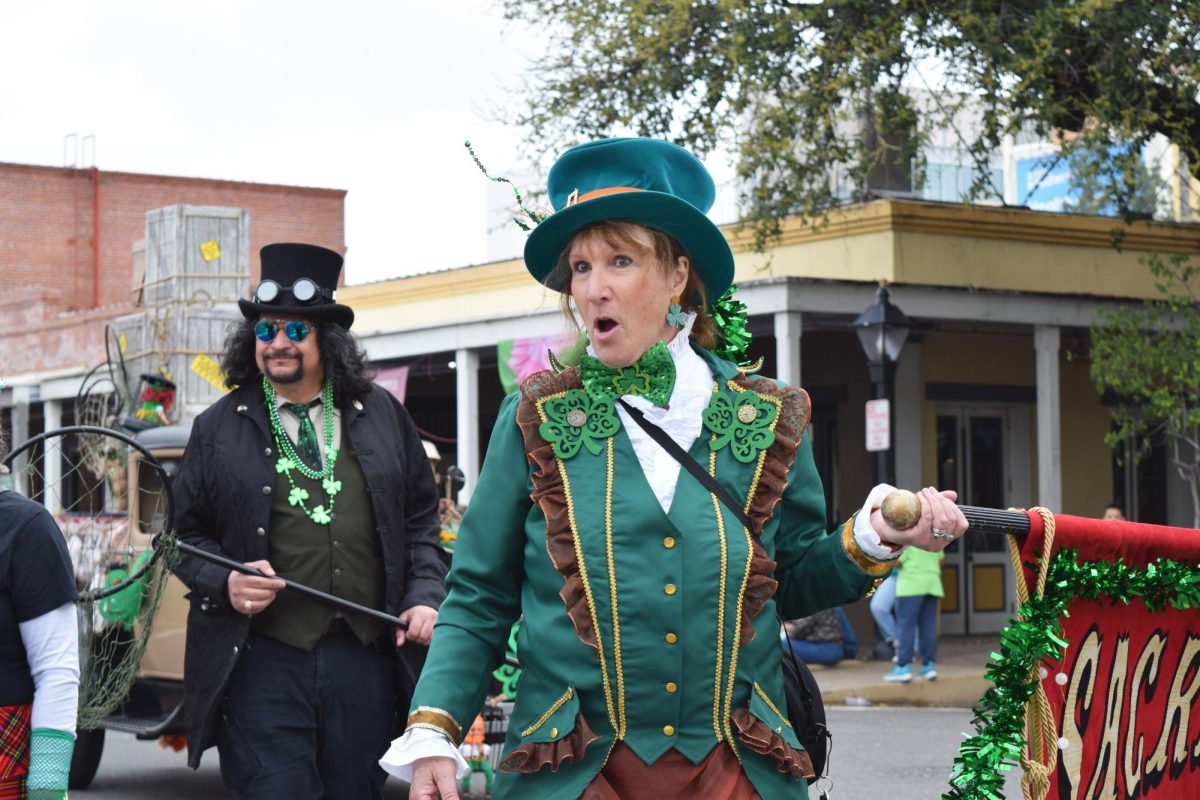City College assistant coach and wrestling Hall of Famer Lee Kemp is set to speak and sign copies of his memoir at Underground Books in Oak Park on a late November Saturday afternoon. The black-owned bookstore is small but spacious with nylon carpet and paintings from a local artist hanging throughout the store. The owner, an older African American woman, addresses the attendees.
“Today we have something educational and inspiring. We have a world champion,” says Mother Rose with an ebullient squeak.
Kemp, sitting in the front row of the audience, rises and walks to the front of the room in a white dress shirt and blue jeans. Standing in front of a mahogany table with yellow flowers in the center of it, Kemp begins his story about his life that he also tells in his 2017 book, “Winning Gold: Success Secrets of a World Champion.”
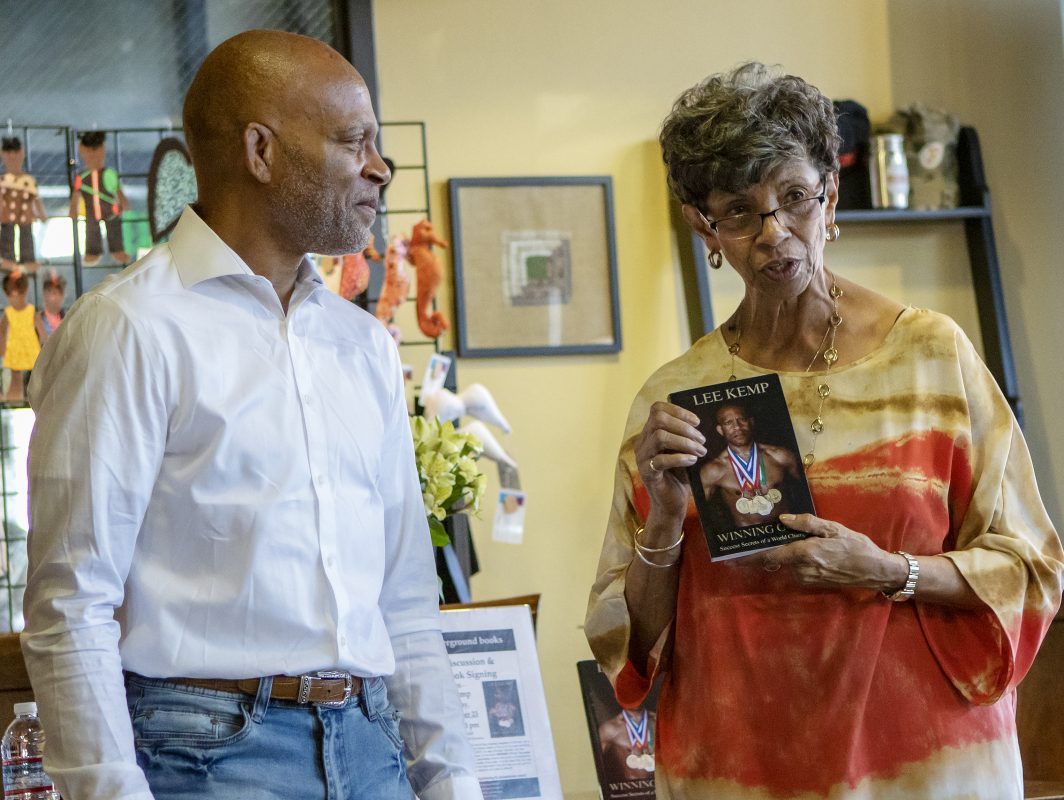
“I’m already overwhelmed because the people that are here really knew of me,” said Kemp. “I just never thought I was that big of a deal. When people show me this much interest, it always surprises me. The reason why I’m standing here is because of the great success I’ve had as a wrestler.”
Most people in the small audience at Underground Books were aware of Kemp’s accomplishments. The three-time National Collegiate Athletic Association (NCAA) wrestling champion and three-time freestyle wrestling World Champion became the City College assistant wrestling coach in August. He was part of the National USA Olympic coaching staff from 2006 to 2008 in Colorado Springs.
In 2008, as one of the three freestyle wrestling coaches at the Beijing Olympics, he was inducted into the United World Wrestling Hall of Fame at those Olympics.
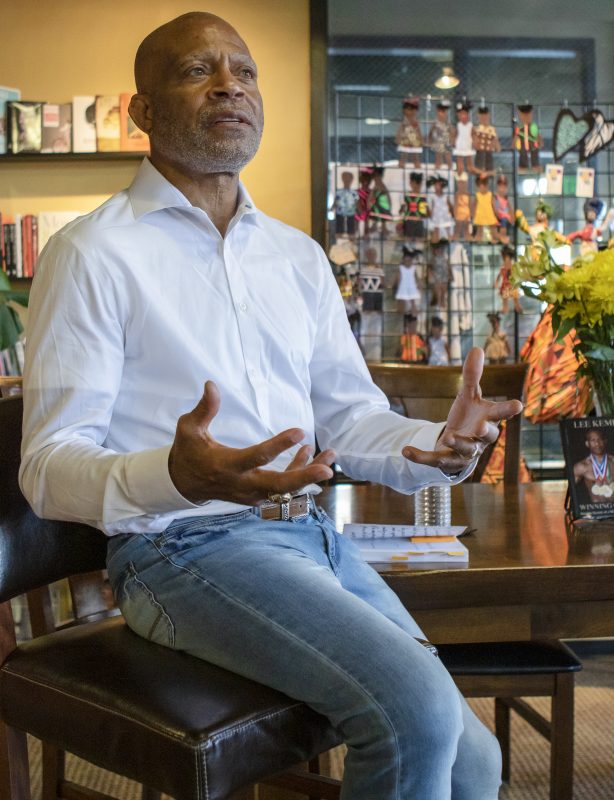
Despite being an accomplished wrestler, Kemp never envisioned that he would become a wrestling coach after retiring from the sport in 1984. Kemp, who earned an MBA in marketing, worked in New York City for four years at the Clairol hair care company. After that, Kemp owned and operated his own Ford dealership in Forest Lake, Minnesota, for 15 years.
“I never planned on being a wrestling coach,” Kemp said in an interview before the book signing. “I went to college and did well in college, and I won national titles and world titles. I’ve always been close to wrestling but never coached because I felt like I wanted to do something other than 100% coaching. I envisioned myself working in some sort of business.”
Although Kemp didn’t coach professionally after retiring as an athlete, he always stayed involved in wrestling by helping at clinics and camps. Living in Montclair, New Jersey, when he worked at Clairol, Kemp would go after work and help out the wrestlers at Montclair High School and Montclair State College. Kemp moved to California last year because he wanted to be closer to one of his sons.
“I’m experiencing something that I thought I never would—that is watching my son compete in the sport of wrestling,” said Kemp. “I went through a tough time when I got divorced and was apart from my kids for a while. I could never even imagine I have two sons. My youngest son ended up coming to live with me when he was 10, which was totally unexpected. My daughter also came when she was 16. I gradually convinced my son to try wrestling, and he did, and ended up earning a scholarship to Fresno State, which is why I’m here in the first place—in California.”
Kemp started working with UFC fighter Urijah Faber and Team Alpha when he first got to Sacramento. Shortly after working for Faber, Kemp met former Panthers coach Dave Pacheco, who was nearing the end of his career as the City College wrestling coach and invited Kemp to help with the wrestling team. Kemp recalled how supportive Pacheco was when Kemp visited City College to talk to some of the wrestlers. Pacheco and Kemp spent hours talking with each other in Pacheco’s office, sharing wrestling stories.
“There’s a lot of coaches like Dave who’ve dedicated their lives to helping young men through the sport of coaching and education. That’s invaluable,” Kemp said. “Then shortly after that, I learned he was going to retire. I wasn’t interested in the head coaching job or anything like that, but I was interested in helping the team like I was with Dave. When new head coach Marques Gales got the job, through Dave Pacheco, I met him and he brought me on staff.”
Pacheco, who retired last spring, had followed Kemp’s career for years.
“Lee Kemp was a year ahead of me in college, and he was my idol,” said Pacheco. “He was such a good wrestler. I followed everything he did. You always want to be as good as the best ones. I met him a couple of times briefly at some functions. I never had a meeting where I could just talk to him and learn stuff from him. You get a guy who is a three-time world champion and Olympian [and] three-time NCAA champion—people are going to listen and learn.”
Now Kemp comes to City College three to four days a week to help train wrestlers. City College coach Marques Gales talks about the importance of having Kemp on staff.
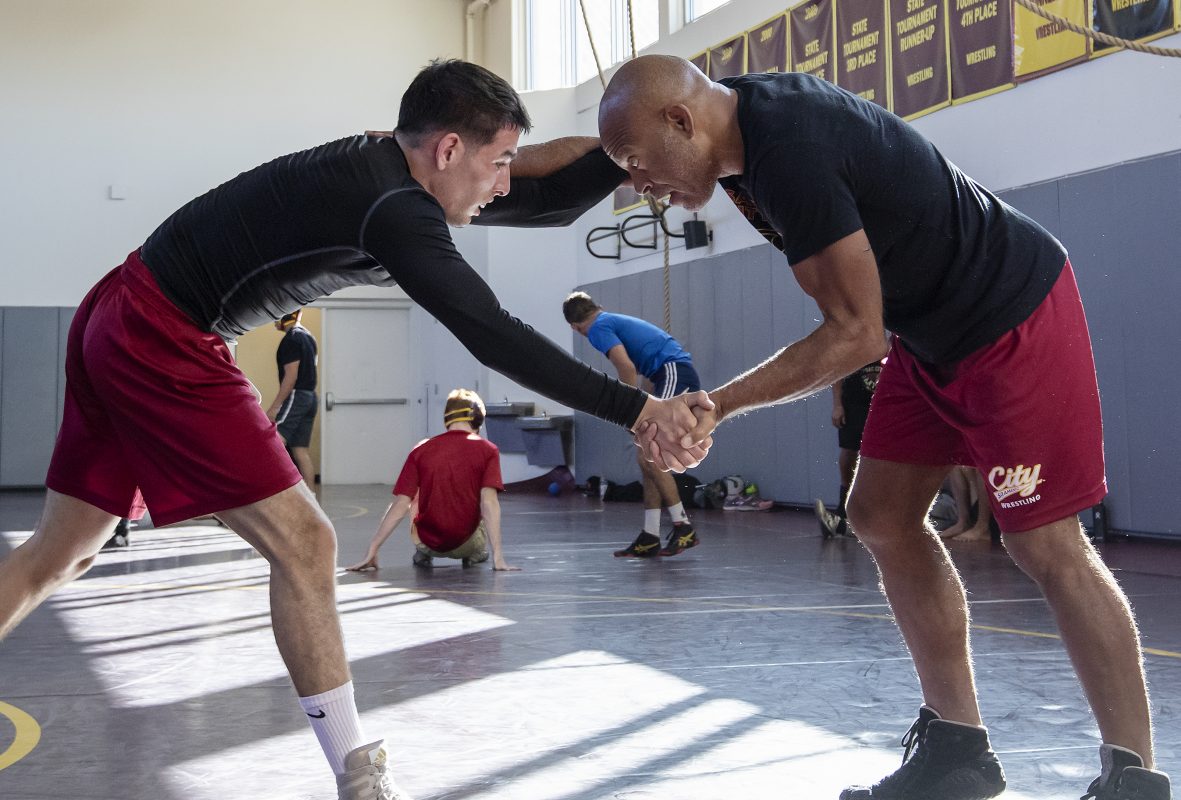
“One of the most knowledgeable people I’ve ever been around in a wrestling sense,” said Gales. “He’ll instruct the whole team sometimes, but his primary focus is tweaking things with individuals. He’ll take an individual approach and help people fine-tune their technique. We learn a lot from him every day. Just having him in a room doesn’t mean we’re all going to be world champs. But everyone understands we have the ability to pick the guys brain who’s been there. He’s been there done that. He’s helping us mentally prepare like world champs. He’s helping our technique become as fine-tuned as world champs but it takes a lot of time and dedication.”
“I’ve gotten to a place in my life where I feel like I have a lot of experience in a lot of areas,” said Kemp. “I think I offer a lot to the young men and women that I have the opportunity to come in contact with. I like that part—to make a difference in someone’s life because wrestling made a tremendous difference in my life. I owe a lot to my current health to wrestling. I went through a really tough time in my life, and wrestling gave me the strength and resilience I learned through wrestling to bounce back basically, and to realize what I could become.”
Kemp was adopted at the age of 5 and grew up in Cleveland, Ohio. After he finished elementary school, his parents moved to a farming community in Charden, northeast of Cleveland. Kemp recalled that living on that farm helped him develop a hard-working attitude that he also applied to wrestling. Kemp was introduced to wrestling in the seventh grade and started wrestling on a team in his freshman year of high school.
“I was blessed. I got adopted to a great family,” said Kemp. “I learned a lot of great lessons from my mom and dad. I learned to work hard on that farm, and once I got out of wrestling, I realized the farm was actually good for me. I had no reason to really find wrestling. It was a divine appointment that I found wrestling. Wrestling taught me great lessons about life and resilience about how to overcome adversity, which is one of the biggest things that people need to learn how to overcome in this world because there is adversity everywhere.”
Kemp recalled his preparation for matches and how that helped develop him into a champion. In wrestling, Kemp stressed, it’s more than just wrestling moves; strategy, psychology, training techniques, diet, and nutrition are all important to wrestling, as well as the ability to compete at a high level.
“The preparation happened long before the actual match. I was always preparing myself mentality for wrestling. It took up most of my thoughts,” Kemp said. “I went after the match 100%, and I didn’t care if I won or lost. I was just going to try to win the match, and that’s how I approached every match. I always went out to win, and by doing that, I had to make sure I was prepared physically, (that) my conditioning was the best it could possibly be. I had to cover all the basics, and I did, so when it came time for match time, I was ready.”
Kemp was set to compete in the 1980 Olympics in Moscow, and was heavily favored to win the gold medal, but the United States boycotted the Olympics because of the then-Soviet Union’s refusal to withdraw troops from Afghanistan. Kemp never got his Olympic experience as an athlete, but 38 years later at the Beijing Olympics, he was inducted into the International Wrestling Hall of Fame.
“The pinnacle would’ve been the Olympic gold medal, and I never got that,” said Kemp. “I’m very proud I achieved the pinnacle of being inducted into the [internatinal] hall of fame. I feel proud about that on the strength of winning three gold medals and a world championship and being favored to win the Olympic gold medal in the Moscow Olympics. I was very honored to have that bestowed upon me in 2008. It was a ceremony at the Beijing Olympics, and I still cherish that because that to me is my pinnacle.”
Kemp sits on a tall chair as he takes incoming questions. In his wistful response to the questions about Moscow, Kemp talked about the lessons he’s learned from not being able to experience the Olympics.
“Of course, you get over it. It’s like a death, really. It’s like the death of a loved one, right?” Kemp said. “They die and you mourn and you go on, but that person’s not there, and you always mourn over them in some way. You may not be crying but you still… it’s a loss—loss of a child, loss of a loved one, or loss of something that you wanted. It’s like a hole. I’ll never get that back. And that’s what it’s like, and it’s still like that.
“Every four years I get reminded of it again. Right when I think I’m doing pretty good, 2020’s rolling around, the Olympic flag-waving and Americans holding flags. I never got my chance to do that.”
But Kemp is also philosophical about that experience nearly 40 years ago.
“It may be hard for you to believe this, but I learned more from that disappointment than I ever could’ve by winning. By just riding off into the sunset, winning a gold medal, I learned so much more by having that horrible experience and having had the resilience to come back and to just chart out another path for myself,” said Kemp. “So sometimes we think we know exactly how our life is going to go, then all of a sudden—bam—there’s a roadblock there. And we either quit, stop or mentally die at that point, or you figure out another avenue for your life.”
Lee Kemp’s green eyes take in the small audience listening intently.
“And it forced me to do that. I came back to wrestling, something I just kinda thought I shouldn’t do. But you have to be open to ideas… but maybe this thing you were good at once, maybe that thing is something you can use to give to other people.”








